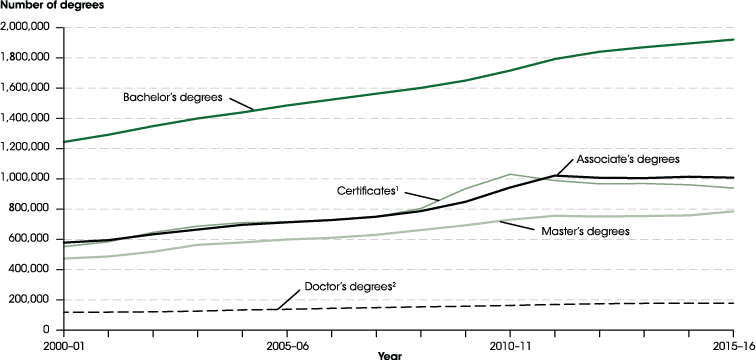Why do employers specify that applicants for a given position have a degree in XYZ or PQR or whatever? Among other reasons:
- Because the employer knows that, aside from in rarefied circumstances, one can only obtain the skills, knowledge and abilities needed to perform the job at the level the employer requires by having gotten the noted degree.
- Because one's having a college degree, particularly a young person, is demonstrable evidence of their being self-motivated, which corresponds to the ability to set a goal and remain focused on achieving it and do so with minimal supervision and outside assistance.
- Because one's performance in the course of obtaining one's college degree measurably and comparably among different students indicates the pace at which one can "consume" large amounts of information, accurately evaluate it and its implications, and, in turn, use that information to devise implementable solutions.
- For any given course, students who score higher in the class have demonstrated they faster and more comprehensively mastered the content of the course than did their lower scoring peers.
The above applies to entry level "career path" jobs/applicants. At some point in any given career, that one has or lacks a degree becomes largely irrelevant; however, it's also very possible to commence and build a very fine career without a degree. To wit, Sean Hannity hasn't a college degree. Bill Gates has no college degree; neither did Steve Jobs. Other highly successful people who have no college degree and who come readily to mind: Oprah, Paul Allen, Michael Dell, John Mackey, Beth Holmes, Matt Mullenweg, Mark Zuckerberg, Larry Ellison, Ellen DeGeneres, Jack Taylor, Dan Ek, Dave Neeleman, Ty Warner, and David Geffen.
Even though they haven't a college degree, each of those individuals developed the skills needed to perform every bit as admirably as can a college grad. One thing that each of those individuals developed aptly and that many people do not are vision, courage and
entrepreneurial and competitive spirit. College does not and cannot teach that, yet those two qualities are what every successful self-employed person possesses.


